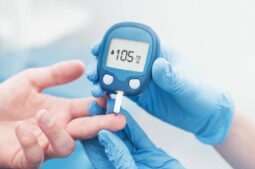
Once you’ve made the momentous decision to seek help with a fertility problem, you’re going to be faced with the many questions, judgements and decisions that follow. First and foremost for many people is, of course, ‘What is the best infertility clinic near me?’ But even a simple query like this one needs to be unpacked. Proximity may need to be balanced against other types of convenience; above all, the range of specialities and treatments offered must be appropriate for your own particular circumstances.
In this IVI article we aim to help you weigh up the pros and cons of each scenario you may consider. There are basic issues like compliance with the relevant legal framework and medical expertise as well as more personal judgements to be made about cost and how well supported you feel.
How do I choose an infertility clinic appropriate for my needs?
You may be in a position where you have a fairly clear idea of what the problem is and how it needs to be treated. If this is the case, you need to focus your search not necessarily on a fertility clinic close to you but on one which can offer exactly what you need. There’s a lot you can find out from a fertility clinic’s website. Is there a comprehensive list of treatments available? For example, does it offer IVF and ICSI? Does it offer genetic testing where there is a demonstrable medical need? Does the clinic carry out its own procedures or delegate them to another institution? Does the clinic offer its own donor programme or would you need to make use of a separate agency?
There is a further crucial point if you are considering IVF, concerning the number of embryos transferred. In the light of current knowledge about the dangers for both mothers and babies from multiple births, you need to find out the clinic’s policy on embryo transfer. Many clinics now offer SET (single embryo transfer) with very good success rates. This has been made possible by advanced techniques of embryo selection prior to implantation and carries far fewer health risks than multiple transfers.
On the other hand, if you’re not sure what the problem is, then you would need to focus your research on finding a clinic that offers a full range of diagnostic testing for you and, if appropriate, your partner.
Close to home: is it really more convenient?
You may have to put your needs and priorities above geographical convenience. Certainly, if you are lucky enough to have an infertility clinic close to your home address, and one which offers the services you need, it could be a real bonus. However, it may not outweigh other considerations. If you were to decide on a clinic which is not close to home, then other factors will naturally come into play. Does the clinic offer an economic option for local hotels? Does it provide a mentor who will be your single point of contact to help you through the unfamiliarity of strange surroundings? Are the staff friendly, welcoming and willing to discuss your concerns?
Does the clinic comply with the relevant regulatory body?
Naturally, you will need to be reassured that the fertility clinic you are considering has properly qualified and experienced medical staff and that its processes comply with the relevant regulatory and legal regimes. These differ depending on your location. Some examples are:
- In the USA, clinics should be a member of the Society for Assisted Reproductive Technology (SART). You can look up their status and success rates on their website or on that of the CDC (Centers for Disease Control and Prevention).
- In the UK, the regulatory regime is set by the Human Fertilisation & Embryology Authority, which also compiles statistics on the success rates of various clinics and treatments.
- In Europe there are different authorities, with the central body being the European Society of Human Reproduction and Embryology which offers an analysis of the situations in the various countries. For example, countries including Spain, France and Germany all have well-developed regulatory systems, with others being at various stages of development.
What do these differing legal environments mean for you?
This too depends on your personal situation. One stark difference would be of interest if you were considering the use of donor eggs or sperm. In the USA, there are different rules around donor anonymity in different states and so you would need to research the situation where you are. In the UK, donor anonymity is not possible, and legislation is in place to allow resulting offspring to access certain information about the donor. In Spain, the situation is completely different, and donor anonymity is guaranteed. You would need to take a view about which of these situations would make you feel more comfortable.
Contacting IVI
Finding the best infertility clinic near me? We hope that we’ve helped you to consider the options and decide what’s really best for your needs.
At IVI we are aware that not every clinic will suit every patient. However, if you think that what we offer may be in line with your requirements, do take a look at our services, the opportunities for supportive and sensitive mentoring arrangements and our independently audited clinical results. You may also be interested in our IVI Baby Plan which, for those accepted on to the programme, is a guarantee of success or your money back.
If you think that we could provide what you’re looking for, do get in touch. You can contact us by phone on 0800 52 00 161 from the UK or +34 960 451 185 from all other countries. Alternatively, simply use our online contact form.





Comments are closed here.